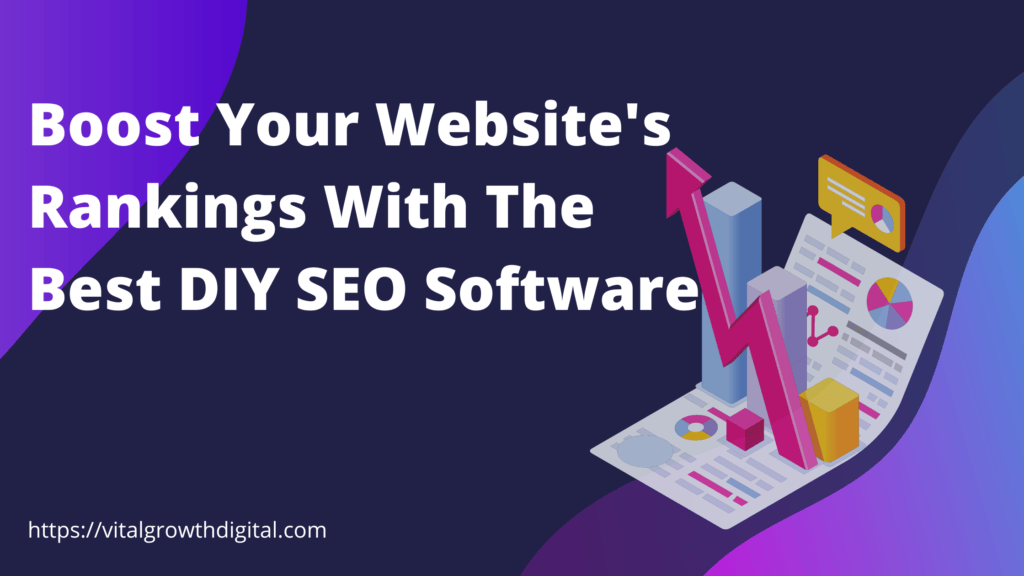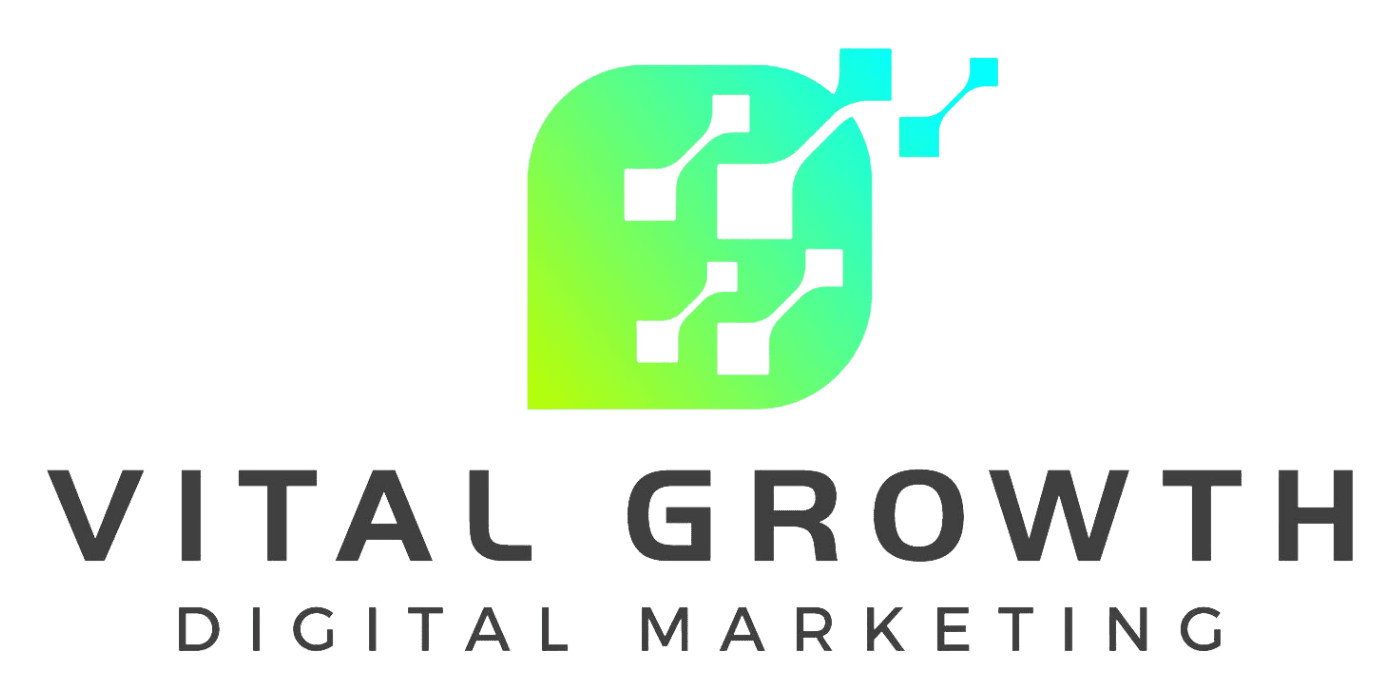If you’re a small business owner looking to improve your website’s rankings, you’ve probably heard of search engine optimization (SEO). With so many technicalities involved, SEO can seem complex and overwhelming. That’s where DIY SEO software comes in.
In this blog post, we’ll introduce you to DIY SEO software and how it can help optimize your website and boost your online visibility. So, let’s demystify the world of SEO together and explore how DIY SEO tools can make a difference for your business.
What is DIY SEO Software, and How Can It Improve Your Website Rankings?
Search engine optimization improves your website’s visibility and ranking in search engine results pages (SERPs). The higher your website ranks in search results, the more likely potential customers will find and visit it. However, implementing effective SEO techniques can be complex and time-consuming, particularly for small businesses with limited resources.
DIY SEO software, also known as self-service SEO software, is a type of software that allows businesses to manage their SEO campaigns without the need for external expertise. DIY SEO software typically includes various tools and features that help businesses optimize their website for search engines, such as keyword research, on-page optimization, link building, and analytics.
By using DIY SEO software, businesses can take control of their SEO strategies and improve their website rankings without needing expensive SEO agencies. DIY SEO software can help businesses to identify the best keywords for their business, optimize their website content, and build high-quality links that improve their website authority and search engine rankings.
However, it’s important to note that DIY SEO software is not a magic bullet solution. Effective SEO requires ongoing effort, strategic planning, and a deep understanding of search engine algorithms. Additionally, some DIY SEO software tools may require a steep learning curve, so it’s important to choose the right software and dedicate sufficient time and resources to ensure success. With the right approach, however, DIY SEO software can be an effective and cost-efficient solution for businesses looking to improve their website rankings and increase their online visibility.
The Benefits of Using DIY SEO Tools & Software for Small Business Owners
As a small business owner, you often have a limited budget, which means that you may not have the resources to hire an external agency to manage your SEO efforts. However, SEO is essential for small businesses to improve their online visibility and attract more traffic to their websites.
This is where DIY SEO software comes in, offering a range of benefits for small business owners:
- Cost-effective: One of the primary benefits of using DIY SEO software is that it is a cost-effective way for small businesses to manage their SEO campaigns. DIY software can be significantly less expensive than hiring an external agency, which can help small businesses save money while still achieving their SEO goals.
- Control: DIY SEO software gives small business owners complete control over their SEO campaigns. This means they can make their website changes as needed without waiting for external agencies to implement them.
- Flexibility: DIY SEO software is highly flexible and can be customized to suit the specific needs of small businesses. Businesses can choose the tools and features that best fit their needs and budget.
- Technical Support: Many DIY SEO software providers offer technical support to their users, which means that small businesses can get help and advice when needed through facebook groups, videos, or blogs. This can be especially valuable for businesses new to SEO and may require guidance as they navigate the software.
- Data Analysis: DIY SEO software typically includes tools and features for data analysis, which can help small businesses measure their SEO campaigns’ success and make data-driven decisions about their online marketing strategies.
- Competitive Advantage: By using DIY SEO software, small businesses can stay competitive and improve their website rankings, leading to increased visibility, traffic, and sales.
How to Choose the Right DIY SEO Software for Your Business
Choosing the right DIY SEO software for your business can be a daunting task, especially if you are not familiar with the technicalities of SEO. Here are some steps that can help you choose the right DIY SEO software for your business:
- Assess Your Needs: Start by assessing your business needs and objectives. Consider factors such as your budget, the size of your website, your current SEO level, and the level of technical expertise within your organization. This will help you identify the essential features and tools for your business.
- Research the Software: Conduct thorough research on different DIY SEO software providers, and compare their features, pricing, and customer support. Look for reviews from other small business owners, as this can give you a better understanding of how the software works in practice.
- Check for User-Friendliness: Choosing a DIY SEO software that is easy to use and understand is essential. Look for software that has an intuitive interface with clear instructions and tutorials to help you get started quickly.
- Analyze the Features: Analyze the features offered by each software provider and ensure that they align with your business needs. Consider whether the software includes keyword research, on-page optimization, link building, and analytics tools.
- Consider the Level of Support: Choose a DIY SEO software provider that offers excellent customer support and access to technical experts who can help troubleshoot any issues. Consider the availability and responsiveness of their support team and the communication channels available.
- Budget: Consider the costs of the software, and compare them to your budget. Look for a provider that offers affordable pricing and a range of plans to suit your needs.
Best DIY SEO Software to Help You Rank Higher in Search Results
There are many different DIY SEO software tools available in the market, each with its own unique features and benefits. Here are some top DIY SEO software tools that can help you improve your website’s search engine rankings:
Ahrefs
Ahrefs is a popular SEO tool known for its powerful backlink analysis capabilities. It provides in-depth insights into your website’s backlink profile, including the number of referring domains and the quality of those links.
Uber Suggest
Uber Suggest is an all-in-one SEO tool that offers keyword research, on-page optimization, and link-building features. It also includes a site audit tool that helps identify technical issues hindering your website’s search engine rankings.
Google Analytics
Google Analytics is a free tool that provides valuable insights into your website’s traffic and user behavior. It includes audience demographics, acquisition sources, and conversion tracking.
Google Search Console
Google Search Console is a free tool that helps you monitor your website’s performance in search results. It provides insights into your website’s search traffic and alerts for any technical issues impacting your website’s rankings.
RankMath
RankMath is a popular WordPress plugin that helps with on-page optimization. It provides real-time feedback on your content, including keyword optimization, readability, and meta descriptions.
Screaming Frog
Screaming Frog is a website crawler that provides valuable insights into your website’s technical SEO. It can identify broken links, duplicate content, and missing meta tags, among many more website issues.
Moz
Moz is a comprehensive SEO software that provides features like keyword research, link building, and site audits. It also includes a rank tracker that lets you track your website’s search engine rankings.
SEMrush
SEMrush is an all-in-one SEO tool that provides features like keyword research, on-page optimization, and backlink analysis. It also includes a rank tracker and site audit tool to help identify any technical issues.
Yoast SEO
Yoast SEO is a popular WordPress plugin that provides on-page features like keyword optimization, meta descriptions, and readability analysis. It also provides XML sitemap functionality to help search engines crawl your website more efficiently.
Serpstat
Serpstat is an all-in-one SEO tool that provides features like keyword research, competitor analysis, and backlink analysis. It also includes a site audit tool to help identify any technical issues impacting your website’s rankings.
Majestic
Majestic is a popular backlink analysis tool that provides valuable insights into your website’s backlink profile. It includes link tracking and competitor analysis to help you stay ahead of the competition.
SpyFu
SpyFu is an SEO and PPC tool that provides valuable insights into your website’s search engine rankings and advertising performance. It includes features like keyword research, competitor analysis, and PPC analysis to help you improve your online visibility and attract more visitors to your website.
SE Ranking
SE Ranking is an all-in-one SEO software that provides features like keyword research, site audits, and backlink analysis. It also includes a rank tracker and social media management tools to help you improve your online presence and attract more visitors to your website.
Mangools
Mangools is an SEO software that provides features like keyword research, rank tracking, and backlink analysis. It also includes a site profiler tool that helps identify technical issues impacting your website’s search engine rankings.
DIY SEO Software vs. Hiring an SEO Agency: Pros and Cons
When improving your website’s search engine rankings, you have two primary options: using DIY SEO tools or hiring an SEO agency. Here are some pros and cons of each approach:
DIY SEO Software Pros:
- Cost-effective: DIY software is generally more affordable than hiring an external agency, which makes it a more cost-effective option for small businesses with limited budgets.
- Control: DIY SEO tools give you complete control over your SEO campaign, allowing you to make changes and updates as needed.
- Flexibility: DIY SEO software is highly customizable, allowing you to choose the features and tools that best fit your business needs and budget.
- Learning Opportunity: By using DIY SEO tools, you’ll have the opportunity to learn about SEO and how it works, which can help you to make more informed decisions about your online marketing strategies.
Cons:
- Steep Learning Curve: DIY SEO software requires a certain level of technical expertise and knowledge, which means some users may have a steep learning curve.
- Time-Consuming: DIY SEO requires ongoing effort and can be time-consuming, so it may not be the best option for businesses with limited resources.
- Limited Expertise: Without external expertise, you may not have access to the latest SEO techniques and strategies that an agency could provide.
Hiring an SEO Agency Pros:
- Expertise: Hiring an external SEO agency gives you access to the expertise of experienced SEO professionals who can provide guidance and advice on the latest SEO strategies.
- Time-Saving: By outsourcing your SEO efforts to an external agency, you can save time and focus on other aspects of your business.
- Comprehensive Services: SEO agencies typically offer a wide range of services, including keyword research, on-page optimization, link building, content creation, and analytics.
Cons:
- Cost: Hiring an external SEO agency can be expensive (see our blog on the cost of SEO marketing services), which may not be feasible for small businesses with limited budgets.
- Lack of Control: Outsourcing your SEO efforts to an external agency means you’ll have less control over your SEO campaign, and you may have to wait for the agency to implement changes and updates.
- Misaligned Goals: An external agency may not fully understand your business needs and goals, which could result in a misaligned SEO campaign.
Ultimately, deciding between using DIY SEO software and hiring an external agency will depend on your business needs and budget. Both approaches have pros and cons, and it’s important to carefully consider the advantages and disadvantages of each before making a decision.
Step-by-Step Guide to Using DIY SEO Tools to Optimize Your Website
Optimizing your website for search engines using DIY SEO software can be complex, but following a step-by-step guide can make it easier. Here is a step-by-step guide to using DIY SEO software to optimize your website:
- Conduct Keyword Research: Keyword research is the first step in optimizing your website. Use your SEO software to identify relevant keywords that your target audience is searching for. This will help you to create content that aligns with user search intent.
- Optimize Your Content: Use your newly purchased software to optimize your website’s content, including page titles, meta descriptions, and header tags. Ensure your content is readable, engaging, and relevant to your target audience.
- Optimize Images: Use your SEO tools to optimize your website’s images, including file names and alt text. This can help to improve your website’s visibility in image search results.
- Fix Technical Issues: Use your SEO tools to identify technical issues on your website, such as broken links or 404 errors. Fixing these issues can help to improve your website’s user experience and search engine rankings.
- Build Quality Backlinks: Use your DIY SEO software to identify high-quality websites that link to your website. This can help to improve your website’s authority and search engine rankings.
- Monitor Your Website’s Performance: Use your DIY SEO software to monitor your website’s performance, including traffic, bounce rates, and click-through rates. This can help you identify improvement areas and make data-driven decisions about your online marketing strategies.
- Improve Website Speed: Use your DIY SEO software to analyze your website’s loading speed and identify areas for improvement. This can help to improve user experience and reduce bounce rates.
- Optimize for Mobile: Use your DIY SEO software to ensure your website is optimized for mobile devices. This can help improve your website’s visibility in mobile search results and provide a better user experience.
Common Mistakes to Avoid When Using SEO Software
SEO software can effectively improve your website’s search engine rankings, but it’s important to avoid common mistakes that can hinder your efforts. Here are some common mistakes to avoid when using SEO software:
- Over-optimizing Content: While optimizing your content is important, over-optimizing can be counterproductive. Keyword stuffing, for example, can result in penalties from search engines and hurt your rankings. Instead, focus on creating high-quality, engaging content that provides value to your audience.
- Ignoring Technical Issues: Technical issues, such as broken links or missing meta tags, can negatively impact your website’s search engine rankings. Use your SEO software to identify and fix technical issues to ensure your website performs at its best.
- Focusing Solely on Keyword Rankings: While keyword rankings are important, they are not the only metric that matters. It’s important to also focus on other metrics, such as website traffic, bounce rates, and click-through rates, to get a comprehensive view of your website’s performance.
- Neglecting Mobile Optimization: With more and more users accessing the internet through mobile devices, ensuring that your website is optimized for mobile is important. Neglecting mobile optimization can result in poor user experience and hurt your search engine rankings.
- Not Analyzing Your Competitors: Analyzing your competitors can provide valuable insights into their SEO strategies and help you identify areas for improvement in your SEO efforts. Use your SEO software to analyze your competitors and identify opportunities to improve your website’s search engine rankings.
- Skipping Regular Website Audits: Regular website audits can help you identify and fix technical issues and improve your website’s search engine rankings. Make sure to use your SEO software to conduct regular website audits to stay ahead of any issues.
How to Monitor Your Website’s SEO Performance
Monitoring your website’s SEO performance is crucial to ensuring that your efforts effectively improve your search engine rankings. Here are some steps to monitor your website’s SEO performance:
- Set Goals: The first step in monitoring your website’s SEO performance is to set clear goals for what you want to achieve. This could be increasing website traffic, improving search engine rankings for specific keywords, or increasing conversions. Clear goals will help you measure your progress and make data-driven decisions about your SEO efforts.
- Use SEO Software: Use your SEO software to monitor your website’s search engine rankings for your target keywords. This will help you to track your progress and identify areas for improvement.
- Analyze Website Traffic: Use your website analytics tool, such as Google Analytics, to monitor your website’s traffic and user behavior. This can help you to identify which pages are performing well and which pages may need improvement.
- Monitor Backlinks: Use your SEO software to monitor your website’s backlink profile and identify any high-quality links that are helping to improve your search engine rankings.
- Analyze Competitors: Use your SEO software to analyze your competitors and identify opportunities to improve your website’s SEO performance. This could include identifying keywords that they are ranking for or analyzing their backlink profile.
- Monitor Technical Issues: Regularly monitor your website for technical issues, such as broken links or missing meta tags. These issues can negatively impact your search engine rankings and hurt your SEO performance.
How To Use DIY SEO Software to Beat Your Competitors
Beating your competitors in search engine rankings requires a strategic approach, and using SEO software can be a highly effective way to gain a competitive advantage.
Here are some steps to use DIY SEO software to beat your competitors:
- Identify Your Competitors: The first step in beating your competitors in search engine rankings is identifying who they are. Use your SEO software to conduct competitive analysis and identify which websites are ranking for the same keywords as you.
- Analyze Your Competitors’ SEO Strategies: Once you’ve identified your competitors, use your software to analyze their SEO strategies. This could include analyzing their backlink profile, on-page optimization, targeted keywords, and content strategy. Identify which strategies are working for them and which areas they may neglect.
- Conduct Keyword Research: Use your SEO software to research and identify relevant keywords your competitors may or may not be targeting. This can help you to differentiate yourself from your competitors and improve your search engine rankings for these keywords.
- Optimize Your Content: Use your SEO software to optimize your website’s content, including page titles, meta descriptions, and header tags. Ensure your content is readable, engaging, and relevant to your target audience.
- Build High-Quality Backlinks: Use your SEO software to identify high-quality websites that link to your competitors and reach out to these websites to build your backlinks. This can help to improve your website’s authority and search engine rankings.
- Monitor Your Competitors’ Performance: Use your software to monitor your competitors’ search engine rankings and identify any changes in their strategies. This can help you to stay ahead of the competition and make data-driven decisions about your SEO strategies.
Rev Up Your Online Visibility with DIY SEO Software and Leave Your Competitors in the Dust!
Using DIY SEO software to improve your website’s search engine rankings can be a complex process, but with the right tools and techniques, you can gain a competitive edge in your industry. By using DIY SEO software, you can optimize your website and improve your online visibility, which can help you attract more visitors and, ultimately, grow your business.
With the constantly changing landscape of SEO, it’s important to stay up-to-date on the latest trends and techniques. One of the best ways to do this is by listening to industry experts, such as Joe Rogan, who discuss the latest developments in SEO and provide valuable insights for businesses looking to improve their online visibility.
Remember that SEO is an ongoing process and requires continuous monitoring and optimization. By following the steps outlined in this guide, avoiding common mistakes, and regularly monitoring your website’s SEO performance, you can stay ahead of the competition and achieve long-term success. Don’t let your competitors get the upper hand – use DIY SEO software to optimize your website and leave them in the dust.
Looking for expert help with your SEO strategy?
Contact Vital Growth Digital Marketing today to learn more about our SEO services and how we can help you improve your online visibility and attract more customers to your website.












